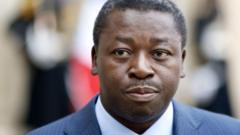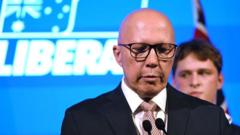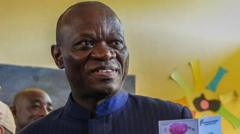The recent appointment of Togo's Faure Gnassingbé to the role of "President of the Council of Ministers," a post with no term limits, has ignited concerns about potential lifetime rule as the country's political landscape undergoes significant transformation.
New Constitutional Role for Togo's Gnassingbé Raises Concerns About Lifetime Rule

New Constitutional Role for Togo's Gnassingbé Raises Concerns About Lifetime Rule
Faure Gnassingbé's new position as "President of the Council of Ministers" solidifies his control amid allegations of political maneuvering.
Faure Gnassingbé has marked his ascent in Togolese politics with his recent swearing-in as the "President of the Council of Ministers," a move that embeds him in the highest position of the executive branch without term constraints. This change emerged following last year's constitutional reform, which abolished presidential elections and ushered in a parliamentary system—steps that critics label as an “institutional coup d'état.”
Historically, the Gnassingbé family has governed Togo for an impressive 58 years, with Faure assuming office in 2005 following the nearly four-decade rule of his father, Gnassingbé Eyadéma. The latest constitutional changes sought to diminish the power of the presidency, relegating it to an honorary status while analysts argue that Gnassingbé's control has become more pronounced with his new role.
Opposition voices have emerged strongly against these reforms, stating that they are strategically crafted to permit Gnassingbé to extend his presidency indefinitely. His party, the Union for the Republic, already holds a commanding majority in the National Assembly, having secured 108 out of 113 seats in recent elections, further consolidating his influence over governmental operations.
As Togo prepares for municipal elections in July under this new constitution, the implications of these structural changes remain a topic of heated debate among political commentators and citizens alike, as questions about democratic integrity and governance persist in the hearts of the electorate.



















